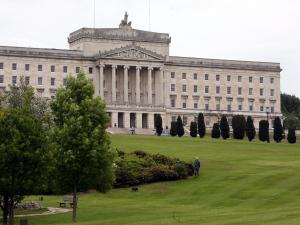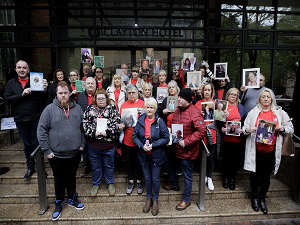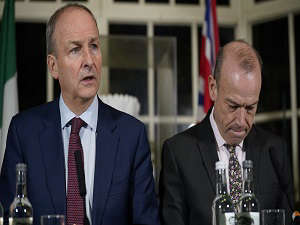
By David Young, Press Association
Northern Ireland's powersharing crisis is set to drift on through the summer as talks were scaled down amid widespread acknowledgement a deal before the autumn is unlikely.
While no formal suspension of the talks process has been called by the UK Government, and the main parties have signalled a willingness to continue some form of engagement over the coming weeks, substantive negotiations are not expected to resume in the short term.
The bitter political rift between Stormont's two largest parties - Democratic Unionists and Sinn Fein - has left the region without a first and deputy first minister since January and a functioning ministerial executive since March.
On Tuesday, Sinn Fein blamed the failure to settle their differences on the DUP's parliamentary deal with the Prime Minister.
The party's Stormont leader Michelle O'Neill said: "What this constitutes is a monumental failure on behalf of Theresa May."
However, the DUP has claimed Sinn Fein's "excessive shopping list" of demands is preventing the formation of a new executive.
Conceding the restoration of devolution would not materialise in the "immediate term", Northern Ireland Secretary James Brokenshire said: "Despite the progress made by the parties to restore devolved government in Northern Ireland, gaps remain."
Mr Brokenshire now must decide if he will step in to pass a budget for Stormont's rudderless administration.
Civil servants are currently in charge of the region's government departments, but a lack of budget is restricting their ability to spend the region's allotted resources.
"I will reflect carefully in the coming days on any further steps which may be required to support the continued effective provision of public services in Northern Ireland," said Mr Brokenshire.
The DUP and Sinn Fein, the two parties whose sign-off is required to form a devolved government, remain at loggerheads over a range of issues.
Sticking points include the shape of legislation to protect Irish language speakers, the DUP's opposition to lifting the region's ban on same-sex marriage, and mechanisms to deal with the legacy of the Troubles.
Imminent recesses at Stormont and Westminster - and heightened community tensions around the loyal order marching season - are among the factors inhibiting a breakthrough in the short term.
Mrs O'Neill heavily criticised Mrs May.
"She has set back decades of work that has been done here throughout the years and it's a consequence, as we all know, of the DUP supporting the Prime Minister and the Prime Minister in turn supporting the DUP," she said.
DUP leader Arlene Foster suggested a deal will now have to wait until at least the autumn.
"We are disappointed we don't have an agreement this afternoon," she said.
"We are going to keep working at it through the summer and hopefully we can come to an agreement later on in the year.
"We are certainly up for an agreement, we are up for devolution."
Mrs Foster and Mrs O'Neill both insisted MLAs should continue to get paid, despite the fact the Assembly has been in cold storage since March.
Offering justification for paying the £49,500 salary to 90 MLAs, the leaders stressed that their representatives would continue to work hard over the summer.
Negotiations were always unlikely to succeed if they stretched into mid-July, when they would be framed against the backdrop of Orange Order commemorations around the "Twelfth of July".
Irish Foreign Minister Simon Coveney said: "The Governments can support and encourage but, in the final analysis, it is only the parties themselves that can make an agreement with each other.
"All sides may now wish to reflect on how progress can best be made and I would encourage the parties to maintain dialogue with each other over the coming weeks."
The devolved institutions imploded in January when Mrs Foster was forced from office after Sinn Fein's then deputy first minister, the late Martin McGuinness, quit.
That was in protest at the DUP's handling of the renewable heat incentive (RHI), a botched scheme that left the administration facing a £490 million overspend.
Mr McGuinness's move triggered March's snap Assembly poll and subsequent months of faltering negotiations to restore a devolved government.
The row over RHI exposed a series of other deep seated divisions at the heart of the administration.


 Teenage girl killed in road crash named as Kamile Vaicikonyte
Teenage girl killed in road crash named as Kamile Vaicikonyte
 Covid-19 inquiry ‘an opportunity for candour’ from Stormont leaders
Covid-19 inquiry ‘an opportunity for candour’ from Stormont leaders
 UK and Irish ministers to meet amid row over migration
UK and Irish ministers to meet amid row over migration
 Three men set to go on trial for murder of journalist Lyra McKee
Three men set to go on trial for murder of journalist Lyra McKee
 Swann refuses to rule out resigning if budget is not changed
Swann refuses to rule out resigning if budget is not changed